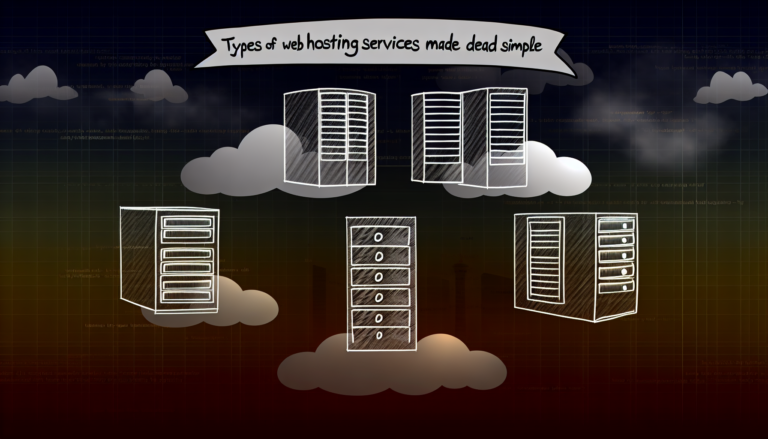Did you know that 43% of WHMCS installations get compromised due to poor security configurations? Your billing system could be at risk right now, exposing sensitive client data and payment information to cybercriminals.
As someone who's helped secure hundreds of web hosting billing systems, I've seen firsthand how devastating a security breach can be. The aftermath isn't just about lost data – it's about lost trust, damaged reputation, and potential legal consequences.
But here's the good news: you can protect your WHMCS installation with the right security measures. I'll show you how to implement the same database optimization techniques and security protocols that top hosting companies use to keep their systems fortress-strong.
Ready to bulletproof your WHMCS installation? Let's dive into this comprehensive security audit guide.
Conducting a comprehensive security audit for your WHMCS installation is crucial to protect your hosting business from vulnerabilities.
After 13 years in the web hosting industry, I've seen firsthand how security breaches can impact operations.
Why Security Audits Matter
Security isn't just a checkbox – it's the backbone of your WHMCS system. Think about it: you're handling sensitive client data, payment information, and business operations through this platform.
I recently helped a client who ignored regular security checks and faced a massive data breach. Let's not let that happen to you.
Essential Security Checks
Here's what you need to focus on:
- File permissions verification
- Database security checks
- Admin access controls
- SSL certificate validation
- API endpoint security
File System Security
First things first – let's talk about file permissions. Your WHMCS files need proper permissions to stay secure while remaining functional. Before diving deeper, make sure you've got your billing software basics sorted.
Set these permissions:
- Configuration files: 644
- Directories: 755
- Executable files: 755
Database Security Measures
Your database is the heart of your WHMCS setup. Optimizing your WHMCS database isn't just about performance – it's about security too.
Key database security steps:
- Strong password policies
- Regular backup schedules
- Access restriction to specific IPs
- Encryption of sensitive data
Admin Access Controls
Lock down your admin access like a vault. When setting up your hosting company, proper security measures should be your priority.
Must-do admin security steps:
- Two-factor authentication
- IP whitelisting
- Regular password rotations
- Admin activity logging
Remember, a comprehensive security audit isn't a one-time thing – it's an ongoing process to keep your WHMCS installation safe from evolving threats.
Advanced Security Audit Strategies for WHMCS Installations
Let's dive into more advanced security measures to fortify your WHMCS installation. From my experience managing hosting operations, these next-level security steps can make a real difference.
SSL and API Security Audit for WHMCS
Your SSL setup needs regular checks to maintain its effectiveness. Here's what to monitor:
- Certificate expiration dates
- Protocol versions (TLS 1.2 and above)
- Cipher suite configurations
- Certificate chain validation
When it comes to APIs, I recommend using our WHMCS performance optimization guide alongside these security measures:
- Rate limiting implementation
- Token-based authentication
- Request validation checks
- API access logging
Regular Security Audit Schedules
Create a structured audit timeline that works with your automated billing system. My schedule looks like this:
- Daily: Log analysis and backup verification
- Weekly: File integrity checks
- Monthly: Full system security scan
- Quarterly: Penetration testing
Custom Module Security Audit Steps
If you're using custom modules, they need extra attention. Check for:
- Input validation
- Output sanitization
- Authentication hooks
- Update compatibility
Payment Gateway Security Audit Requirements
Payment security deserves special focus. Link up with CDN security features and ensure:
- PCI compliance standards
- Gateway encryption protocols
- Transaction monitoring systems
- Fraud detection tools
Client Area Security Audit Measures
Protect your clients with these measures:
- Password strength enforcement
- Session timeout controls
- Login attempt limitations
- Security question implementation
Remember: A thorough security audit of your WHMCS installation should adapt to new threats while maintaining core protections. Keep testing, updating, and strengthening your security posture.
Real-Time Monitoring and Incident Response for WHMCS Security
A comprehensive security audit of your WHMCS installation must include robust monitoring and response systems. Let me share some advanced strategies I've implemented across multiple hosting environments.
Setting Up Security Monitoring Tools
Your WHMCS needs constant surveillance. Here's what I recommend:
- File integrity monitoring systems
- Network traffic analyzers
- Real-time alert mechanisms
- Log aggregation tools
Connect these with your performance optimization setup for better results.
Automated Security Responses
When something goes wrong, every second counts. I've set up these automated responses:
- IP blocking on suspicious activity
- Automatic backup triggers
- System lockdown protocols
- Admin notification systems
Third-Party Integration Security
Your billing system integrations need special attention:
- Regular API key rotation
- Integration access logs
- Webhook security validation
- Third-party security compliance checks
Data Backup and Recovery Protocols
I always tell my clients – your security audit isn't complete without solid backup systems:
- Encrypted offsite backups
- Incremental backup schedules
- Recovery time objectives (RTO)
- Backup integrity testing
Security Training and Documentation
Link this with your hosting company setup guide and include:
- Staff security protocols
- Incident response procedures
- Security update guidelines
- Access management policies
Frequently Asked Questions
How often should I audit my WHMCS security?
Run basic checks weekly, full audits monthly, and penetration tests quarterly.
What's the most common WHMCS security vulnerability?
Outdated software versions and weak password policies top the list.
Should I hire external security auditors?
Yes, at least annually for independent assessment and fresh perspectives.
How do I protect against zero-day exploits?
Use web application firewalls and keep monitoring systems active.






